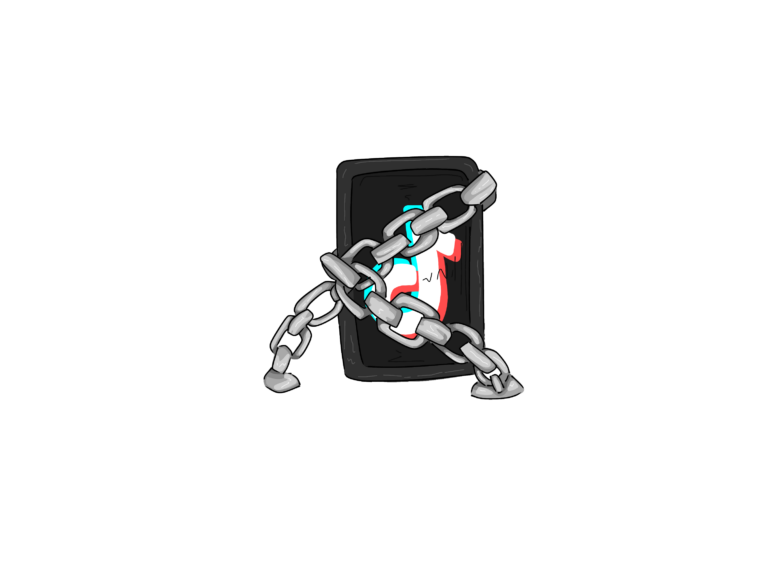
On Jan. 19, TikTok was removed from Apple’s App Store and Google’s Play Store, pausing its services. Many users all over the country were worried about what may happen to the app and the community surrounding it.
“I use it all day,” said sophomore Madissen van Lingen. “I open my phone and my finger automatically opens TikTok. When I go home, I go ‘oh I have homework’ and then I just scroll TikTok for 3 hours.”
TikTok, launched in 2017 by Chinese company ByteDance as a short-form-content social media platform, has faced intense scrutiny from the U.S. government. In June 2022, concerns about TikTok employees leaking personal data were raised, prompting national security concerns, and worrying U.S. lawmakers, who believed Chinese officials may be stealing U.S. user data. Despite these concerns, some users remain indifferent.
“Our data gets stolen every day by the American government and everyone in general, so I don’t really care to be honest,” van Lingen said.
In response to worries about privacy raised in 2022, a bill to ban TikTok gained traction in Congress in March 2024, sparking public outrage. Many Americans flooded congressional offices with calls to oppose the ban. Ultimately, in April 2024, former President Joe Biden officially signed the bill stating that ByteDance had nine months to sell TikTok to a U.S. owner or face the risk of being banned. This nine-month deadline ended on Jan. 19, causing TikTok to be temporarily shut down.
On Jan. 20, President Donald Trump took office and signed an executive order postponing the TikTok ban by 75 days, making the new deadline April 5. He suggested making TikTok into a joint venture, with the U.S. owning at least 50% of the company. This order was a significant shift from his earlier stance of supporting a ban of the app in 2020.
Even with TikTok going dark for less than a day, some students felt greatly affected.
“Some of my friends were genuinely devastated,” said junior Hayden Ha. “Personally, I do think it matters quite a bit, but I don’t think that people were reacting in a very fair way. I saw a reel on Instagram that was like ‘this is the worst decision the American government has ever made,’ which is just not true considering all of history. It makes no sense to say that and people are blowing this out of proportion.”
Other students seem to share Ha’s sentiments.
“I don’t really care if TikTok is gone,” said freshman Emily Tawn. “It’s not that big of a deal to me, but I know other people will be very sad because a lot of them are addicted to TikTok and they don’t have any other platform.”
With the threat of TikTok being banned, many users started using Xiaohongshu, also known as RedNote, another Chinese-owned social media app.
“I honestly think it’s funny more than anything,” Ha said. “The U.S. government wanted us to be off a platform where our data gets taken constantly, and then everyone moved on to RedNote, a [Chinese]-owned company. It just shows the lack of care when it comes to this sort of thing and how people, especially people our age, just don’t care about our privacy, like we just don’t think it’s important at all.”
Many have been arguing that by banning TikTok, the government is restricting freedom of speech, making this an unconstitutional act. Ha explains his view on this claim.
“It does infringe on free speech in many ways,” Ha said. “The worry is justified considering that it could be a security risk, but on the other hand, it does restrict the freedom of information and access to the internet, which should not be taken away. So while I don’t think that the ban is the most egregious thing ever, it is toeing the line of security versus safety.”
As TikTok faces a critical deadline to decide on its future in the U.S., the debate over data privacy and freedom of speech continues. While some users have already begun exploring alternative platforms, the outcome of this situation may influence how other social media companies operate.



